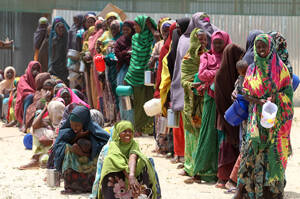Earthquakes, oppression, floods and famine are just some of the targets of the Jesuit Universities Humanitarian Action Network, an initiative to educate undergraduates at Jesuit-run universities about the humanitarian crises such disasters cause and how best to respond to them. The initiative was formed as a result of discussions among Jesuits about students’ enthusiasm for humanitarian efforts and the fact that such enthusiasm needs direction. “We felt that young people’s passion for helping people wasn’t being well-channeled. They would raise money to buy blankets or something and send them down to a crisis center, but it was an unsophisticated approach,” said Rick Ryscavage, S.J., director of Fairfield University’s Center for Faith and Public Life. The network intends to create an integrated curriculum in Jesuit schools world-wide to prepare undergraduates for careers in humanitarian work.
Humanitarian Studies
Show Comments (
)
Comments are automatically closed two weeks after an article's initial publication. See our comments policy for more.
The latest from america
July 16 marks 80 years since the first atomic bomb was detonated. The specter of nuclear annihilation has been with us ever since.
The first time we see the titular hero of James Gunn’s new film “Superman,” he doesn’t descend from the heavens. He plummets.
If we imagine ourselves as satisfying a God who will “give us” things only if we do the “right things,” then our relationship with God becomes less a friendship and more a chore.
For 13 years, Josep Lluís Iriberri, S.J. has guided pilgrims along the same trail St. Ignatius walked over 500 years ago.








